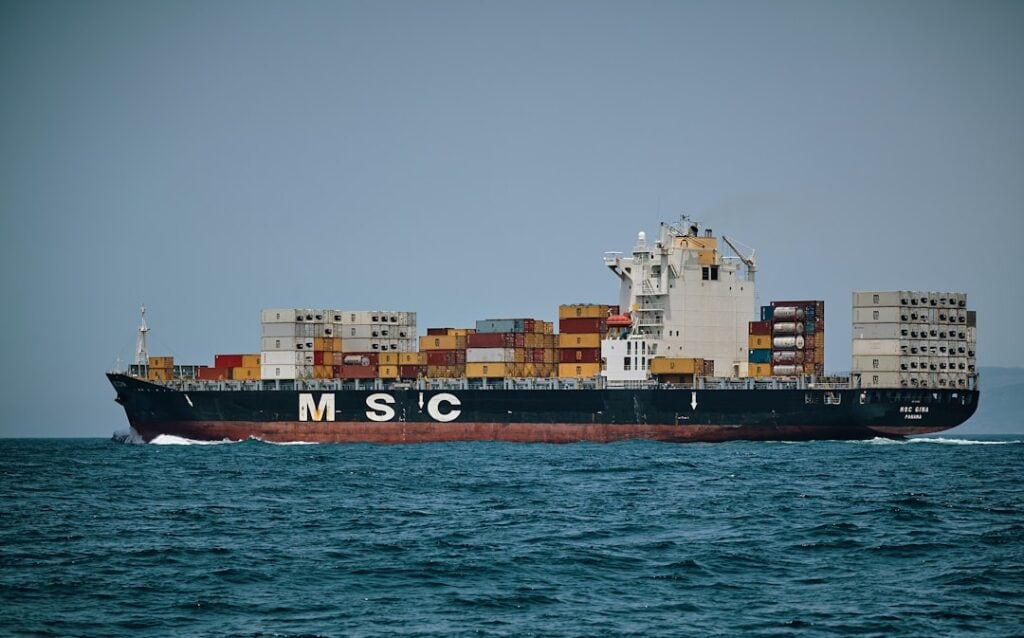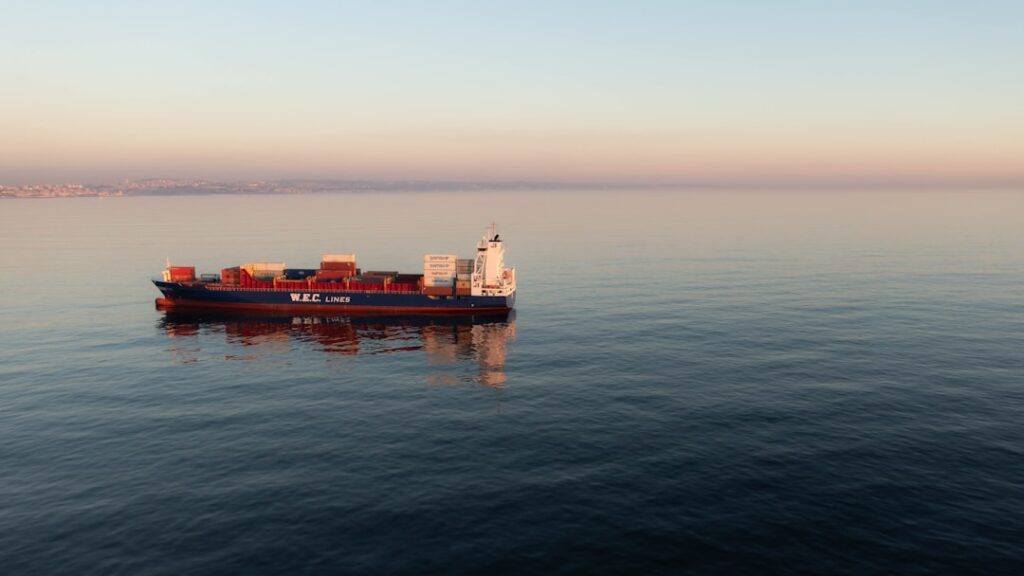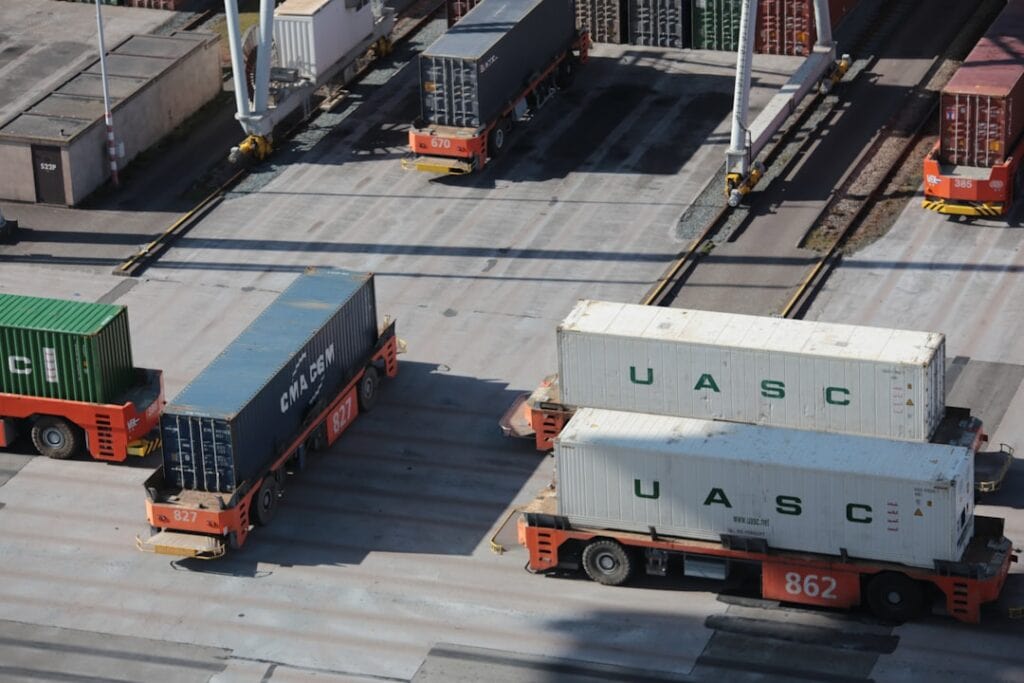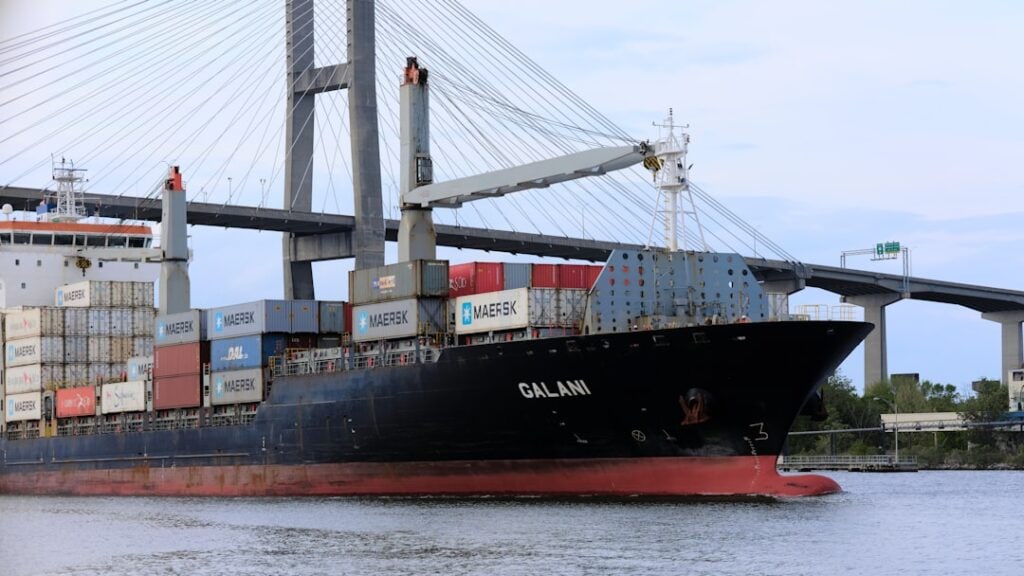In today’s fast-paced global economy, selecting the right ocean service provider isn’t just a logistics decision; it’s a strategic investment in your business’s success. The complexities of modern supply chains demand forward-thinking partners who offer more than just competitive rates. They need to deliver flexibility, reliability, and innovative solutions to navigate the unpredictable challenges of international shipping.
This guide offers a comprehensive roadmap for companies looking to align with providers who prioritize collaboration, honesty, and adaptability. From understanding the nuances of your supply chain to evaluating service providers’ capabilities, we’ll walk you through the critical factors that ensure your supply chain remains resilient and efficient. Whether you’re focused on reducing delays, mitigating risks, or aligning with sustainability goals, this guide is your resource for making informed decisions and building strong partnerships.
Key Takeaways
- Strategic Alignment Over Cost-Saving: Choosing the right ocean service provider is about strategic alignment with business goals rather than just cost-saving.
- Customization and Nuanced Understanding: Effective partnerships require providers to understand the specific needs of your supply chain, moving beyond one-size-fits-all solutions to customized, proactive strategies.
- Balancing Cost and Reliability: While cost efficiency is crucial, it’s essential to balance it with the provider’s flexibility and reliability to manage global shipping complexities effectively.
- Value of Open Communication: Transparent conversations with providers facilitate tailored solutions that align with long-term goals, enhancing trust and operational efficiency.
- Long-Term Partnership Focus: Emphasizing collaboration and adaptability and valuing shared success ensures robust, scalable partnerships that evolve with changing market demands.

Understanding the Supply Chain Landscape: Why Customization Matters
When selecting an ocean service provider, the foundation of reliability lies in understanding the unique intricacies of your supply chain. No two businesses operate the same way, and attempting to fit diverse needs into a one-size-fits-all solution often leads to frustration. Instead, effective planning begins with recognizing the key drivers of your supply chain. What’s most important to your operation: cost efficiency, transit speed, or flexibility?
Different industries, products, and distribution models create varying requirements for transportation. Some supply chains prioritize strict timelines, while others may value minimizing unforeseen costs or navigating geopolitical challenges. The key is to collaborate with providers who take the time to understand these needs.
“I don’t like to look at a box solution as an offer of a service. It frustrates most customers because everyone’s supply chain is slightly different.”
— Neecy Lozic, Vice President of Sales at Pegasus Logistics
Providers who approach supply chains with a “box solution” mentality, offering standardized rates and routes without customization, risk overlooking critical factors. For example, a provider focusing solely on low-cost options might fail to address the total cost of ownership, which includes potential delays, unforeseen documentation fees, or compliance issues at customs. The result? Additional expenses and missed opportunities.
A reliable partner emphasizes transparent communication, asking questions about business drivers and long-term goals. By doing so, they tailor solutions to meet specific needs and anticipate potential obstacles. When selecting a provider, look for those who seek to understand your business beyond transactional shipments; this collaborative mindset is the cornerstone of a resilient supply chain.
Balancing Cost, Flexibility, and Reliability in Ocean Freight
Cost often dominates the decision-making process when choosing an ocean freight provider. However, focusing solely on cost without considering flexibility and reliability can lead to significant challenges. While minimizing expenses is essential, the true measure of a provider’s value lies in how well they manage the complexities of modern supply chains.
Unforeseen disruptions such as geopolitical issues, weather events, or supply chain bottlenecks are inevitable in global shipping. The cost of delays, lost sales, or unplanned adjustments often outweighs initial savings from selecting the lowest-cost provider. This is why flexibility is critical. Providers who offer multiple routing options, transit schedules, and contingency plans empower businesses to adapt to last-minute changes without incurring excessive costs.
“There’s a service impact and then a cost of goods moving. There’s a cost of delays and unforeseen things that happen in the supply chain, whether it’s a geopolitical issue or weather issue.”
— Neecy Lozic, Vice President of Sales at Pegasus Logistics
Reliability, meanwhile, depends on a provider’s ability to deliver consistent service aligned with your specific business requirements. Whether you’re working with tight deadlines, fluctuating volumes, or unique handling needs, a reliable partner will tailor their approach to meet these challenges. They will also explore creative solutions, such as transloading or alternative shipping modes, to balance cost and service priorities.
When evaluating ocean providers, ask the right questions: How flexible are their routing options? Can they accommodate unexpected changes? What is their process for mitigating delays? The answers will help you identify providers who prioritize adaptability and dependability, ensuring that cost efficiency doesn’t come at the expense of supply chain stability.

Avoiding the Pitfalls of Low-Cost, Single-Solution Providers
The allure of low-cost ocean freight providers is undeniable, but looking beyond the price tag is essential. Selecting a provider based solely on cost often comes with hidden trade-offs that can undermine supply chain efficiency. One of the most significant risks is being tied to a single-source solution, a rigid approach that limits flexibility and creates vulnerabilities.
Single-source solutions typically lock you into specific routing schedules or carrier networks. While this might seem straightforward, it removes the ability to pivot when disruptions occur. Geopolitical events, rail strikes, or port delays often demand a flexible response. Providers offering only one option may leave you with no alternatives, forcing you to absorb costly delays or scramble for last-minute solutions.
“If you’re tied to a single source solution, which is generally what you get with a lowest-cost provider, there’s just a lot of stringency and no flexibility in that solution.”
— Neecy Lozic, Vice President of Sales at Pegasus Logistics
In contrast, a multi-solution approach offers the flexibility to adjust as circumstances change. Providers presenting various options through alternative routes, transloading, or expedited destination handling can help you navigate challenges without sacrificing your bottom line. These solutions may come with a slightly higher upfront cost, but they often save money in the long run by reducing the impact of unforeseen disruptions.
When evaluating ocean freight providers, take a holistic view of their offerings. Do they present diverse routing and service options? Are they transparent about the total cost of ownership, including documentation fees or customs processes? Avoid being swayed solely by low rates. Instead, prioritize providers who deliver the adaptability and resilience needed to handle the complexities of global shipping.

Evaluating Key Criteria for Ocean Freight Partnerships
When selecting an ocean freight provider, it’s essential to assess their approach to service, scalability, and innovation. Beyond the basics of cost and transit time, consider these critical factors to ensure the partnership aligns with your operational needs and long-term goals.
- Commitment to Service Excellence
A provider’s dedication to customer service can set them apart. Look for companies with a culture of service-oriented thinking, those that prioritize your needs, adapt to changes, and maintain clear communication. Providers who invest in a customer-first mindset are better equipped to handle the complexities of global logistics. - Network Strength and Resources
A strong network is vital for seamless international shipping. Evaluate whether the provider has robust partnerships with ocean carriers, visibility into regional operations, and “boots on the ground” in critical shipping lanes. Their ability to leverage these resources ensures reliable transit and quick resolutions to unforeseen challenges. - Proactive Problem-Solving and Flexibility
Logistics requires agility. Providers who proactively suggest solutions, accommodate routing changes and adjust to fluctuations in volume demonstrate the flexibility necessary to navigate disruptions. Ask about their approach to planning for seasonality, supply chain bottlenecks, and unpredictable events. - Transparency and Innovation
A transparent provider shares insights into their processes, capabilities, and potential risks. Additionally, they offer tools like real-time visibility and reporting to enhance decision-making. Providers who embrace innovation through technology, sustainability initiatives, or creative logistics strategies can bring valuable efficiencies to your supply chain. - Alignment with Your Values
A successful partnership depends on shared priorities. Providers who align with your goals, whether related to sustainability, cost efficiency, or service-level agreements (SLAs), will deliver a stronger overall performance.
By thoroughly evaluating these factors, you can identify a provider who meets your immediate shipping needs and supports your long-term business objectives. A strong ocean freight partner doesn’t just move goods. They enhance your supply chain’s resilience and effectiveness.

Preparing for the Unexpected: Navigating Supply Chain Disruptions
Unpredictable global logistics challenges, from geopolitical events to rail strikes or sudden port delays, are a reality. The true test of an ocean freight provider’s value is their ability to anticipate and respond to these disruptions without derailing your supply chain.
Providers relying on single-source solutions often lack the flexibility to adapt to last-minute changes. These rigid setups can lead to costly delays, especially when unforeseen events disrupt planned routes. In contrast, providers who build contingency plans and offer multiple routing options are better equipped to handle disruptions with minimal impact on your operations.
“A lot of unforeseen changes, unforeseen geopolitical issues, rail strikes, anything like that, those things add to a cost.”
— Neecy Lozic, Vice President of Sales at Pegasus Logistics
Creative problem-solving plays a significant role in navigating these challenges. For example, transloading can help bypass bottlenecks or expedite delivery when delays occur. Similarly, alternative shipping modes or adjusted schedules can meet tight deadlines without compromising cost efficiency.
Proactive planning is another critical factor. Providers who work closely with you to understand your production schedules, seasonal demands, and volume fluctuations can develop strategies to mitigate risks before they arise. This level of preparedness ensures that your supply chain remains agile and responsive, even in the face of unexpected challenges.
When evaluating ocean freight providers, ask how they handle disruptions and what contingency measures they have in place. A strong provider won’t just react to problems—they’ll anticipate them, ensuring your supply chain stays resilient and adaptable in an unpredictable global environment.
The Importance of Collaboration and Custom Solutions
One of the most critical aspects of selecting an ocean freight provider is their willingness to collaborate with you on tailored solutions. A provider who prioritizes partnership over a transactional relationship can significantly enhance your supply chain’s resilience and adaptability.
Collaboration begins with early involvement. Providers in your planning stages gain deeper insights into your supply chain requirements, from production schedules to volume fluctuations. This early engagement enables them to anticipate challenges and craft solutions that align with your goals, whether building in time buffers for seasonality or accommodating unique routing needs.
“For us, being open with what our capabilities are, welcoming that conversation with our customers, our clients is huge.”
— Neecy Lozic, Vice President of Sales at Pegasus Logistics
Custom solutions are especially valuable in navigating the complexities of global logistics. Instead of rigid, one-size-fits-all options, providers who offer flexibility in routing, transit schedules, and handling processes can adapt to your changing needs. This adaptability reduces the risks associated with unforeseen disruptions, such as port delays or shifts in demand.
When evaluating potential providers, look for those willing to invest time in understanding your business and developing creative solutions tailored to your needs. A collaborative approach improves operational efficiency and builds a foundation for long-term success in an unpredictable global market.

Building Long-Term Relationships with Ocean Freight Providers
Selecting an ocean freight provider isn’t just about addressing immediate needs. It’s about fostering a long-term partnership that supports your business as it grows and evolves. Providers emphasizing collaboration, honest communication, and adaptability are best positioned to become trusted allies in your supply chain strategy.
The foundation of a strong relationship begins with open communication. Providers who welcome ongoing dialogue and are willing to participate in your planning processes demonstrate a commitment to understanding your unique challenges and goals. This proactive involvement allows them to craft tailored solutions and anticipate potential hurdles, creating a seamless flow of goods even in complex logistics environments.
“We want to be a trusted partner and we truly want to be a solution-minded provider.”
— Neecy Lozic, Vice President of Sales at Pegasus Logistics
Consistency is another key element of long-term partnerships. Providers who consistently deliver reliable service and meet agreed-upon standards build trust over time. This reliability is especially valuable as your business scales or encounters shifts in market demands, ensuring that your supply chain remains robust and adaptable.
Flexibility also plays a critical role. Supply chain needs can change due to new sourcing strategies, expanded markets, or unforeseen disruptions. Providers who can pivot and adjust their services to meet these changes strengthen the relationship and help you maintain operational efficiency.
Lastly, a focus on shared success is essential. Providers who align with your values, whether related to sustainability, cost efficiency, or customer service, add more than operational value. They contribute to your overall business strategy, reinforcing the importance of collaboration and partnership.
Choosing a provider who values long-term relationships over short-term gains can create a foundation of trust and mutual success that benefits your supply chain and overall business performance.
The Role of Transparency in Building Resilient Supply Chains
Transparency is a cornerstone of effective partnerships with ocean freight providers. Open communication and a commitment to shared understanding allow providers to address your unique needs while proactively solving potential challenges. When providers prioritize transparency, they create the trust and flexibility necessary to navigate the complexities of global logistics.
Transparent providers invite questions and encourage collaboration. Whether joining your planning sessions or discussing concerns, their willingness to engage ensures they fully understand your supply chain requirements. This level of openness fosters confidence that your provider is invested in your success—not just in moving goods from point A to point B.
“We strive to provide amazing customer experience. For us, we don’t take that lightly. That’s truly in the core of our business.”
— Neecy Lozic, Vice President of Sales at Pegasus Logistics
Another key aspect of transparency is visibility. Providers who offer real-time tracking and detailed reporting tools empower you to make informed decisions at every stage of the supply chain. Access to accurate, up-to-date information minimizes surprises, whether it’s a delay at a port or a shift in transit schedules, and allows you to adjust strategies as needed.
It also extends to identifying areas for improvement. Providers who solicit and act on feedback demonstrate a genuine commitment to refining their services. This collaborative mindset helps optimize your supply chain for long-term efficiency and resilience.
Ultimately, transparency isn’t just about sharing information; it’s about building a relationship based on trust and mutual respect. When evaluating ocean freight providers, look for those who embrace open communication and offer tools that enhance visibility and collaboration. This foundation of transparency ensures your supply chain is prepared to adapt to challenges and seize new opportunities.

Learning and Evolving with Your Ocean Freight Provider
Supply chains are dynamic, and the ability to learn and evolve alongside your ocean freight provider is a crucial component of long-term success. Providers who take the time to understand how your business changes over time—whether through shifting production schedules, new sourcing strategies, or evolving service-level agreements (SLAs)—become valuable partners in navigating the complexities of global logistics.
A provider’s willingness to adapt starts with understanding your full supply chain picture. Providers who ask insightful questions about your goals, challenges, and operational changes demonstrate a proactive partnership approach. For example, understanding volume fluctuations, seasonality, or deadlines allows them to craft solutions that meet your needs without compromising reliability.
“Allow us to understand the full picture so we know what we’re dealing with.”
— Neecy Lozic, Vice President of Sales at Pegasus Logistics
Flexibility is another critical element. The best providers build time buffers, explore multiple routing options, and anticipate disruptions before they occur. This adaptability ensures that your supply chain remains resilient and efficient even as your requirements shift.
Continuous improvement is also key. Providers who regularly evaluate performance, solicit feedback, and implement new strategies foster an environment of mutual growth. This iterative process strengthens the partnership and ensures your logistics operations align with your evolving business objectives.
When evaluating providers, consider their track record for adaptability and commitment to continuous learning. A provider who evolves with you isn’t just a service provider—they’re a strategic partner dedicated to your long-term success. By embracing a collaborative, forward-thinking relationship, you can ensure your supply chain thrives in an ever-changing global market.
Speak to Our International Logistics Team
Protect your supply chain from unexpected disruptions like port strikes, geopolitical tensions, and severe weather. Work with our international logistics experts to develop a resilient, proactive plan that keeps your operations moving, no matter the challenge.
Contact us today to explore customized solutions that give you flexibility, stability, and peace of mind in an unpredictable global market.
About Pegasus Logistics Group
We provide custom logistics solutions and outstanding experiences by investing resources into team members, technology, and a superior transportation network. Taking the necessary steps to find the perfect match for your warehouse operations will ensure that they will perform optimally while also providing protection and helping your business reach its goals.
We have strategically positioned capacity available for your ever-changing supply chain. Our operational model has strict performance benchmarks, and we are focused on delivering your company the best value, efficient results, and the most reliable service.
